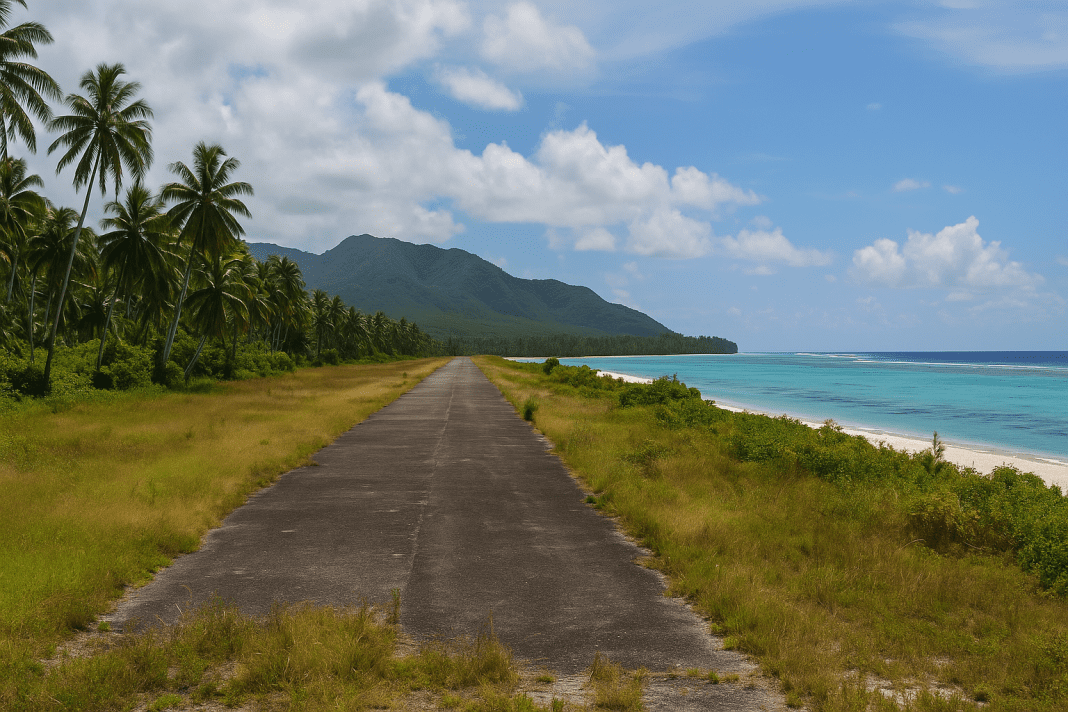The Cook Islands, a group of 15 small islands in the Pacific Ocean, have been closely tied to New Zealand for decades.
Crumbling Partnership in the Pacific
Though the Cook Islands govern their own internal matters, they still rely heavily on New Zealand for foreign affairs, defense, and financial support. Citizens of the Cook Islands even hold New Zealand passports, giving them access to healthcare, jobs, and education across the Tasman Sea.
But this strong relationship has taken a major hit. A dispute began when the Cook Islands signed a wide-ranging cooperation agreement with China. The deal includes promises of economic help, trade development, tourism projects, and even support for deep-sea mining. What angered New Zealand the most was the lack of communication before signing the agreement.
As a result, New Zealand took an unusual and dramatic step. It froze millions of dollars in financial support that had been helping the Cook Islands with schools, hospitals, and other vital services. The freeze affected NZ$18.2 million in budget assistance. This sudden cut has led to real fear among the people of the islands, especially those who depend on that support for survival.
In recent years, China has been expanding its presence across the Pacific. The Cook Islands are now among several nations where Beijing is investing large sums of money in infrastructure, research, and diplomatic partnerships. For the Cook Islands, which have limited resources and small populations, this attention can seem like an opportunity.
China’s Pacific Push Raises Five Eyes Espionage Fears for New Zealand
One of the most urgent needs in the Cook Islands is on the island of Penrhyn.
A narrow airstrip built during World War II is now worn down and unsafe for large tourist aircraft. Locals had hoped New Zealand, Australia, or the United States would step in to fund repairs, but no assistance arrived. Now, many believe China could provide the money to restore the runway and boost tourism.
China’s Growing Footprint
In addition to infrastructure, China has pledged to help with shipping vessels and renewable energy. But the most controversial promise is its involvement in deep-sea mining. The Cook Islands are one of the first countries in the world to grant exploration licenses for seabed minerals. These minerals are seen as critical for technologies like batteries and defense equipment. China has expressed strong interest in helping to explore and extract these underwater resources.
However, deep-sea mining has sparked environmental concerns. Some locals, especially in the fishing community, worry about the damage it might cause to fish populations. Fish are a major food source and an important part of the local economy. The fear is that disturbing the ocean floor could hurt fishing grounds and threaten the islands’ way of life.
The Cook Islands now stand at a difficult crossroads. On one side is New Zealand, a long-standing partner with deep historical and cultural ties. On the other side is China, offering money, infrastructure, and development at a time when the islands need it most.
In Rarotonga, where most of the population lives, the people are divided. Some welcome China’s involvement, hoping it will bring jobs, investment, and tourism.
Others are deeply worried. They fear that relying on China could lead to a loss of control over their country’s future. Many worry that economic help might come with strings attached, even if nothing has been officially stated.
New Zealand Declares War on Russia’s Secret Fleet: 27 Shadow Ships Sanctioned in Global Crackdown
There is also concern that weakening ties with New Zealand could cut off access to health care, jobs, and education for islanders.
Between Trust and Temptation
With New Zealand passports, Cook Islanders enjoy many benefits not available with a Cook Islands-only passport. Losing those could cause a drop in quality of life for many families.
Meanwhile, celebrations are underway to mark 60 years of self-government in association with New Zealand. But instead of bringing joy, the occasion feels tense. New Zealand has not confirmed if it will send officials to attend. It has also said that no new funding will be considered unless the Cook Islands take steps to repair the strained relationship.
China, on the other hand, has stated that its cooperation is based on mutual respect and is not meant to target any third party. Still, its growing interest in deep-sea mining, infrastructure, and diplomacy across the Pacific has made several traditional allies nervous.
The case of the Cook Islands highlights a larger pattern. Across the Pacific, many small island nations are caught in a tug-of-war between China and the West. As China offers investment and development, long-time partners like New Zealand, Australia, and the U.S. worry about losing influence in a region they have historically supported.
For now, the Cook Islands are balancing between two powerful forces. With funding frozen from one side and promises pouring in from the other, the country faces a difficult path ahead. Whether it leads to prosperity or dependency remains unclear—but the pressure is growing with every passing day.

